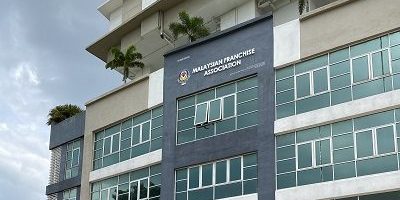7 November 2014 – The Malaysian Reserve
The Ministry of Energy, Green Technology and Water (KeTTHA) is considering green technology micro-franchising to advance the green technology agenda, while providing financial independence for its not-for-profit arm Malaysian Green Technology Corp (Greentech Malaysia).
KeTTHA deputy secretary general Datuk Harjeet Singh said the micro-franchising, which enables startup to take loans under micro- financing schemes of up to RM100,000, will encourage entrepreneurs to venture into green technology and at the same time enable green products, services and technology to be available widely to the consumers.
He cited the neighbourhood-based, environmentally-friendly laundromat, as an example that may be feasible. The laundromat can feature resource (water and energy) efficient machines, with environmentally friendly- detergents.
“We need to be able create microentrepreneurs. Internationally, microfranchising schemes have caught on. It also promotes quality service/products as the franchisor would develop standards for the franchisees to maintain,” he told The Malaysian Reserve in an interview in London.
Harjeet, who oversees the green technology portfolio, led a recent week-long green financing mission to London jointly organised by the ministry and Greentech Malaysia.
He said the ministry is now exploring viable products and services to be marketed through such proposed micro-franchising schemes. Some discussions were with Greentech Malaysia CEO and other senior KeTTHA officials during the recent International Green Technology and Eco Products Exhibition and Conference (IGEM) 2014.
On whether Malaysian consumers are ready for micro-franchising schemes to drive higher sales volume of green products and services, he said: “If it is a product through the micro-franchise that is equally competitive with other products in the market, I don’t see why it wouldn’t take off.”
In his keynote address at the recent IGEM 2014, Netherlands Ambassador to Malaysia Harry Molenaar said that it took up to one generation, or about 30 years, for the transformation of the Dutch society’s mindset to be environmentally-conscious. The country had since gained a its expertise in areas of agrilogistics, smart highways and wastewater management.
The same would be true for Malaysia too, noted Harjeet.
Micro-franchising models are designed to create a constant stream of income for the deliverers of the product or service. They often work better if it is possible to structure delivery in a way that keeps the buyer coming back to the seller, such as with a rental model, or a recharge model, so that the market will not saturate. Part of the benefit of a micro- franchising system is that the seller is from the local community, and therefore reduces the need for distant travel.
Among the members in the Green Financing Study Mission were Greentech Malaysia VP for Smart Partnership Syed Ahmad Syed Mustafa, Credit Guarantee Corp Malaysia Bhd executive VP Kristine Ng Wei Miem and European Union- Malaysia Chamber of Commerce and Industry committee member Ai Li Koch. EUMCCI coordinated the mission.
The aim of the mission was to provide stakeholders with insight on global examples and best practices in green investment formulation and green financing programmes.
The seven-member mission met leaders and representatives from the Science, Innovation and Climate Department under Britain’s Foreign and Commonwealth Office, The Carbon Trust, Green Investment Bank, European Bank for Reconstruction and Development, Transport for London, Self-Energy Ltd, London Energy Efficiency Fund and Bloomberg New Energy Finance.












